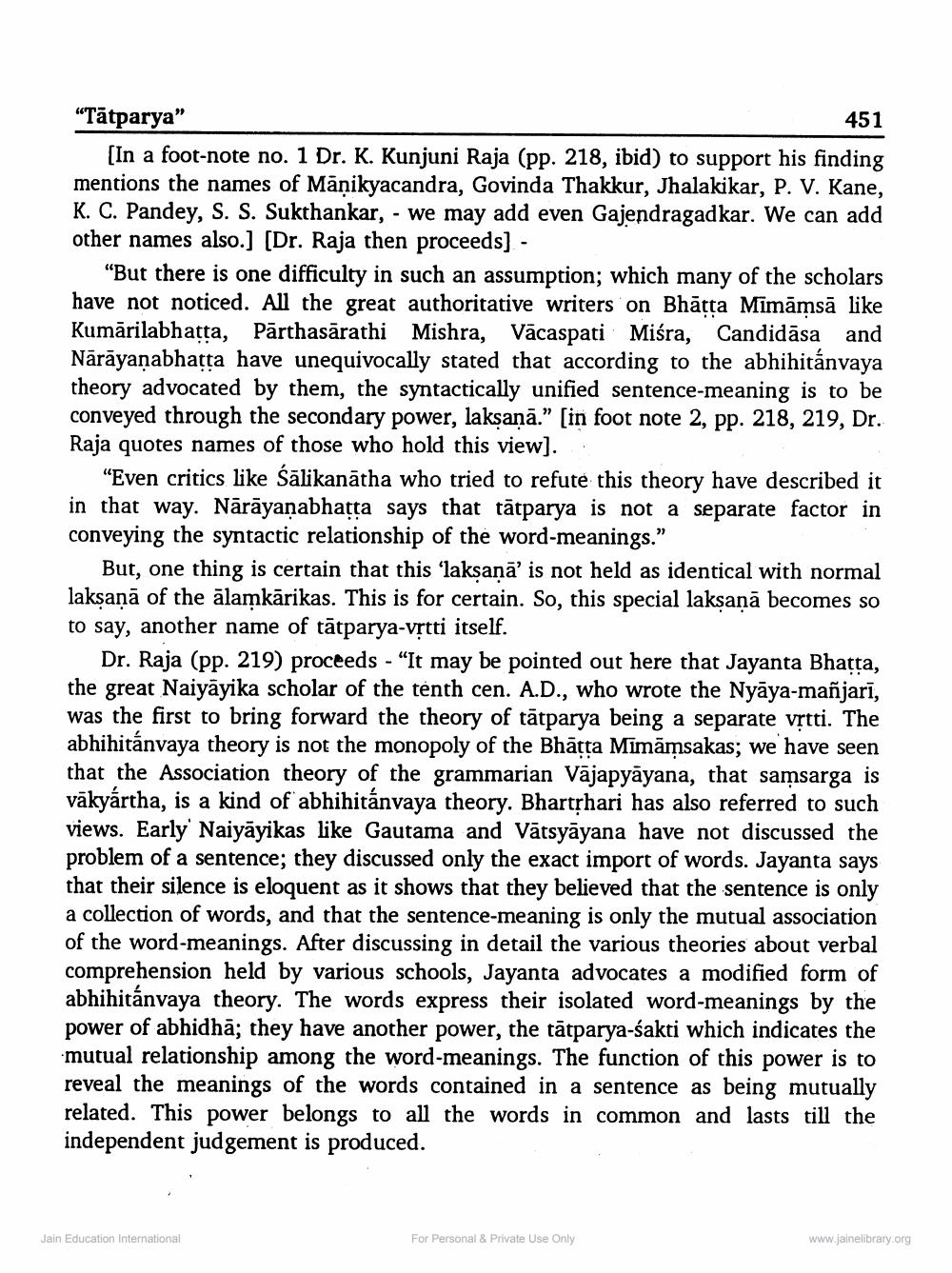________________
"Tātparya"
451
[In a foot-note no. 1 Dr. K. Kunjuni Raja (pp. 218, ibid) to support his finding mentions the names of Manikyacandra, Govinda Thakkur, Jhalakikar, P. V. Kane, K. C. Pandey, S. S. Sukthankar, - we may add even Gajendragadkar. We can add other names also.] [Dr. Raja then proceeds] -
"But there is one difficulty in such an assumption; which many of the scholars have not noticed. All the great authoritative writers on Bhātta Mimāmsā like Kumārilabhatta, Pārthasārathi Mishra, Vācaspati Miśra, Candidāsa and Nārāyanabhatta have unequivocally stated that according to the abhihitánvaya theory advocated by them, the syntactically unified sentence-meaning is to be conveyed through the secondary power, laksaņā." [in foot note 2, pp. 218, 219, Dr. Raja quotes names of those who hold this view)..
"Even critics like Śālikanātha who tried to refute this theory have described it in that way. Nārāyanabhatta says that tātparya is not a separate factor in conveying the syntactic relationship of the word meanings."
But, one thing is certain that this 'laksana' is not held as identical with normal laksaņā of the ālamkārikas. This is for certain. So, this special laksaņā becomes so to say, another name of tātparya-vștti itself.
Dr. Raja (pp. 219) proceeds - "It may be pointed out here that Jayanta Bhatta, the great Naiyāyika scholar of the tenth cen. A.D., who wrote the Nyāya-mañjarī, was the first to bring forward the theory of tātparya being a separate vṛtti. The abhihitánvaya theory is not the monopoly of the Bhātta Mimāmsakas; we have seen that the Association theory of the grammarian Vājapyāyana, that samsarga is vākyártha, is a kind of abhihitánvaya theory. Bhartphari has also referred to such views. Early Naiyāyikas like Gautama and Vātsyāyana have not discussed the problem of a sentence; they discussed only the exact import of words. Jayanta says that their silence is eloquent as it shows that they believed that the sentence is only a collection of words, and that the sentence-meaning is only the mutual association of the word-meanings. After discussing in detail the various theories about verbal comprehension held by various schools, Jayanta advocates a modified form of abhihitánvaya theory. The words express their isolated word-meanin power of abhidhā; they have another power, the tātparya-sakti which indicates the mutual relationship among the word-meanings. The function of this power is to reveal the meanings of the words contained in a sentence as being mutually related. This power belongs to all the words in common and lasts till the independent judgement is produced.
Jain Education International
For Personal & Private Use Only
www.jainelibrary.org




